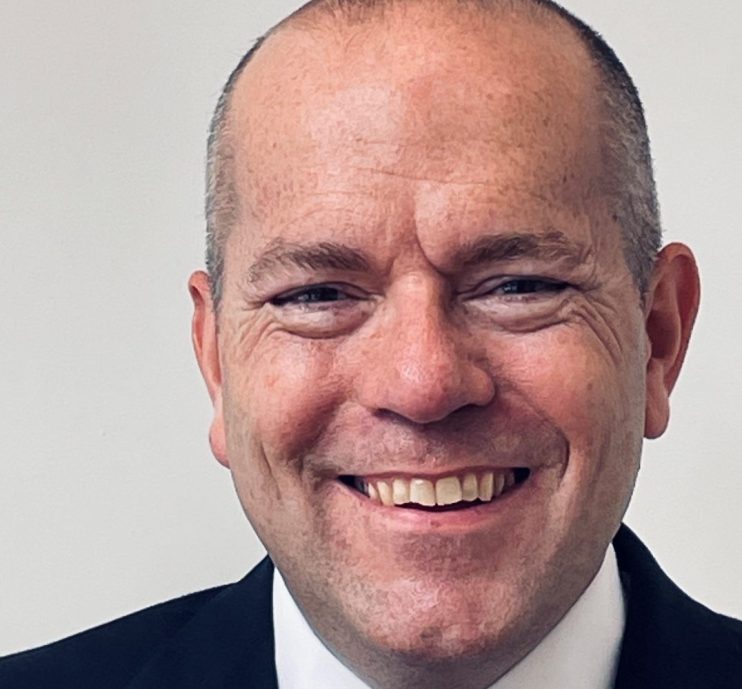Chris Woolard on BNPL, regulatory run-ins and getting financial rulemaking right

The regulatory veteran wants a rulebook for the 21st century, but getting it right might trump speed, Charlie Conchie writes.
Urgent. That was the word used by the former-interim chief of the City watchdog Chris Woolard when he gave his verdict on regulation of buy-now pay-later services in a landmark review two years ago today.
The sector had just been through 12 months of breakneck growth as shoppers poured online through the pandemic and troubles were bubbling to the surface.
But surveying the progress two years on, the industry is less than enamoured. Consumer groups have been sounding the alarm on mounting piles of debt in a cost of living crisis and industry champions say that fintech firms need certainty for innovation.
Woolard, a public sector veteran who served at the FCA, Bank of England and Payments Systems Regulator before moving to big four firm EY, is more generous.
“We have two stories here. One is actually a very rapid reaction by the Treasury initially. And since then, there is a question for them about terms of relative priority and timing,” Woolard told City A.M. in an interview. “I think we can all agree [that] if you are the Treasury, you haven’t had a boring two years have you? There’s been an awful lot to focus on.”
His read of the progress has not always been so forgiving. In a statement to this newspaper last year, Woolard said the “pace had slowed” and it was “important the FCA is granted the necessary powers” – we might read that as a fairly damning assessment in regulatorspeak.
But even without the guardrails Woolard is keen to dismiss the proliferating view of BNPL as a boogeyman on which to project cost of living anxieties.
“You’ve got to be careful not to demonise buy-now pay-later as a product. Actually, for a lot of people, it’s a much better alternative to a number of other sources of credit that could be out there,” he says.
His comments come just after the Treasury has missed another self-imposed deadline on regulation set for the end of last year. Patience is wearing thin and the former FCA chair admits that “uncertainty in regulation is never a good thing”. Any perceived lack of urgency is not for lack of trying though, he argues.
Regulatory Veteran
Woolard worked in the public sector from 1995 and took on his first senior position at the FCA as executive director of strategy and competition in 2013. He was in line for the top job before being pipped to the post by current chief Nikhil Rathi. “When it was time to move on, as is well publicised, that was not entirely my decision,” he admits.
Prior to that he had become known as the frontman for much of the FCA’s work in innovation, rolling out the pioneering regulatory sandbox and founding ‘Project Innovate’. Even with that career, he might be forgiven for not looking too enviously at regulators’ workload now.
Last year saw a series of unprecedented run-ins between regulators and politicians as rules that govern the City began to dominate the political debate. Rishi Sunak even leant on the much-discussed insurance rules in a campaign run-in with Liz Truss.
“It’s slightly strange when you see mainstream political candidates running to lead their political party and they’re talking about Solvency II. I think everyone in the market found that a little odd at times,” Woolard says. “But equally, you can see why the bigger picture on financial regulation is still out there. I think it’s still central to how we think about the UK’s relationship post-Brexit.”
“It’s actually more surprising that they weren’t part of the political debate for quite some time,” he added.
Cooling down
Tensions between politicians and regulators have cooled somewhat since the heated exchanges of the summer leadership campaign, when Truss’ pro-growth coalition were threatening to tear up the rulebook altogether.
But even the ostensibly more City-savvy Sunak has stoked the ire of the watchdogs in recent months. Proposed call-in powers that would have allowed politicians to overrule regulators drew restrained condemnation from the FCA and Prudential Regulation Authority. The chief of the PRA, Sam Woods, warned that call-in powers risked “creating a system in which financial regulation blew much more with the political wind.”
Woolard’s read does not much differ.
“If we look around the world, the only market with those kind of call-in powers is China. And if you look at other major markets that would be the UK’s rivals, those sort of powers really don’t exist,” he says.
Unfortunately for the grand reformers who want rapid pace and major overhaul of regulation, stability is key, he says.
Big Bang 2.0 and the grand swoop of deregulation have been arranged into the more beige package of Edinburgh Reforms, revealed by Jeremy Hunt in early December. While changes to areas like bank ring-fencing and retail investments are still significant, he says, they are “evolution not revolution”.
A more measured approach could be crucial if the UK is to retain its status and keep pace with its international competitors.
“If London wants to be a player in those big global markets – New York, Hong Kong, UK and Singapore – there are certain norms that [they] follow. And there’s no getting away from that.”
Slow and steady
While fintech firms and campaigners are frustrated with the glacial pace of BNPL regulation that thrust Woolard’s name into mainstream conversation, rapid movement is not necessarily something he sees as desirable.
The pondering approach of the Treasury may be holding up movement in this case. But sometimes in regulation, he argues, slow and steady may be more of a virtue than it appears.